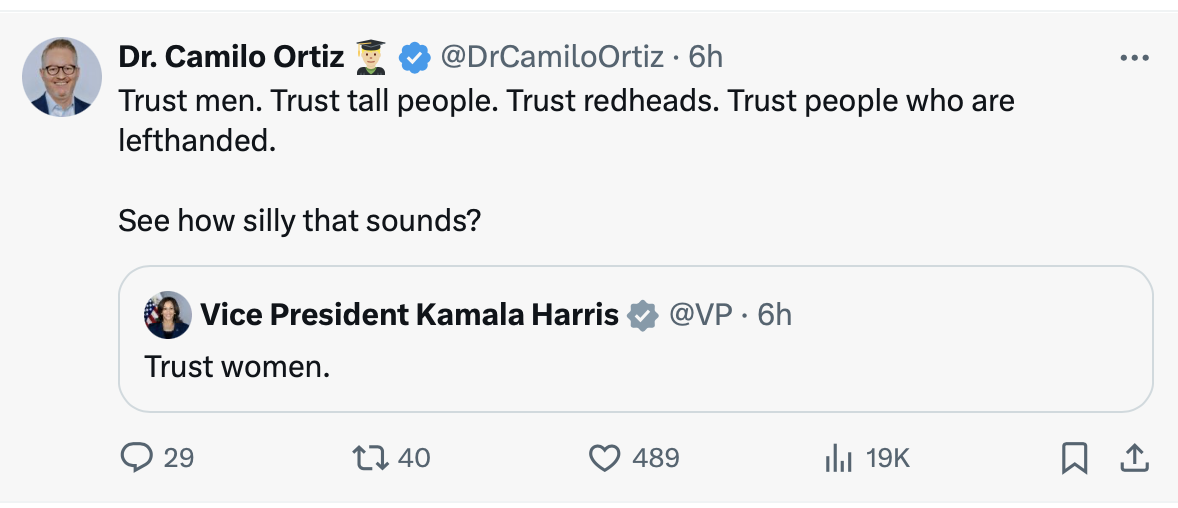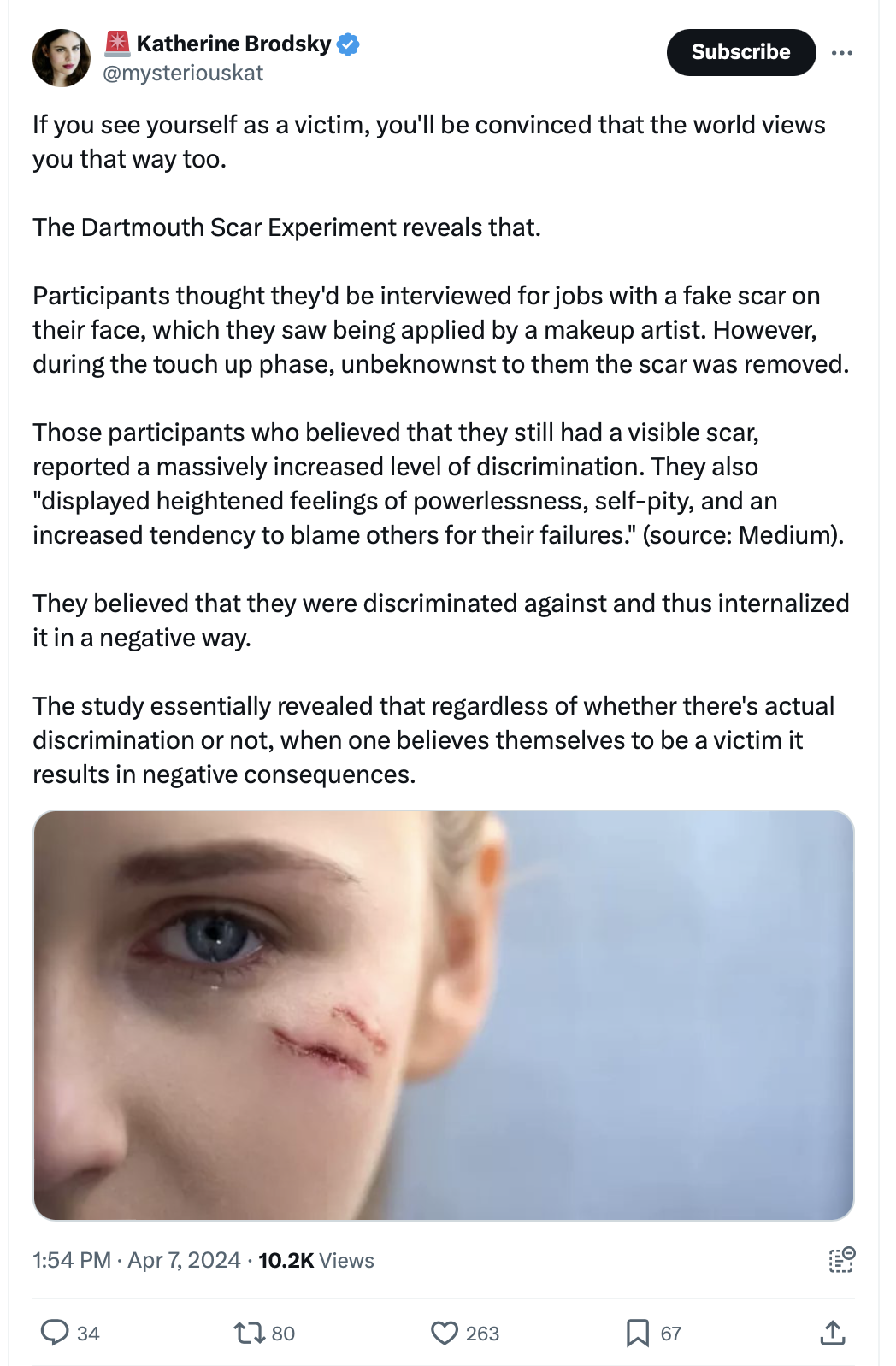Belief in One’s Victimization: The Gift that Keeps on Giving
Classic scar experiment that is highly relevant to modern times, where people who believe that they are victims try to cash in on that purported victimization over and over, classic case of confirmation bias and WYSIATI.
More on the Dartmouth scar experiment at Psychology Today, along with commentary regarding Andy Clark's work on predictive processing, including a link to fascinating rubber hand experiments.
FIRE’s Greg Lukianoff: Stanford’s Approach to Speech is Like Being in “An Upper Class Finishing School.”
Greg Lukianoff, reflecting on the time he attended Stanford University: Don't confuse "upper class white liberal ways of seeing the world with truth itself.” Excerpt:
And one thing that was so clear when I got to a place like Stanford, was that people had a real tendency to confuse sort of upper class white liberal ways of seeing the world with truth itself and therefore wanted everybody to talk exactly like rich white, over educated people. And there was like this lack of curiosity about whether or not those assumptions were even correct.And you think about people who are on the spectrum, you think about people from other countries, you think about people who come from different economic classes or different regions or who are a little bit older or a little bit younger than everybody else, and it's just a series of landmines that you're supposed to either know they're there and if you know they're there, you're supposed to pretend you believe the following five things. It's a really messed up way for a place that is supposed to be a marketplace of ideas, to teach people to interact with each other.
Bill Maher: We Need the Start Honoring Things that Make Us the Same
Bill Maher argues that we need the Irish to lead the way . . .
https://www.youtube.com/watch?v=5Gb5MalUjvI
About Merit
Pro sports: one of the few remaining high-visibility industries where merit is honored without apology, resulting in a consistently high-quality final product.
From Eli Steele:
Here are dozens of other reasons we need to refocus on merit: "In Defense of Merit in Science." Abstract:
Merit is a central pillar of liberal epistemology, humanism, and democracy. The scientific enterprise, built on merit, has proven effective in generating scientific and technological advances, reducing suffering, narrowing social gaps, and improving the quality of life globally. This perspective documents the ongoing attempts to undermine the core principles of liberal epistemology and to replace merit with non-scientific, politically motivated criteria. We explain the philosophical origins of this conflict, document the intrusion of ideology into our scientific institutions, discuss the perils of abandoning merit, and offer an alternative, human-centered approach to address existing social inequalities.
- Go to the previous page
- 1
- …
- 3
- 4
- 5
- 6
- 7
- 8
- 9
- …
- 21
- Go to the next page



